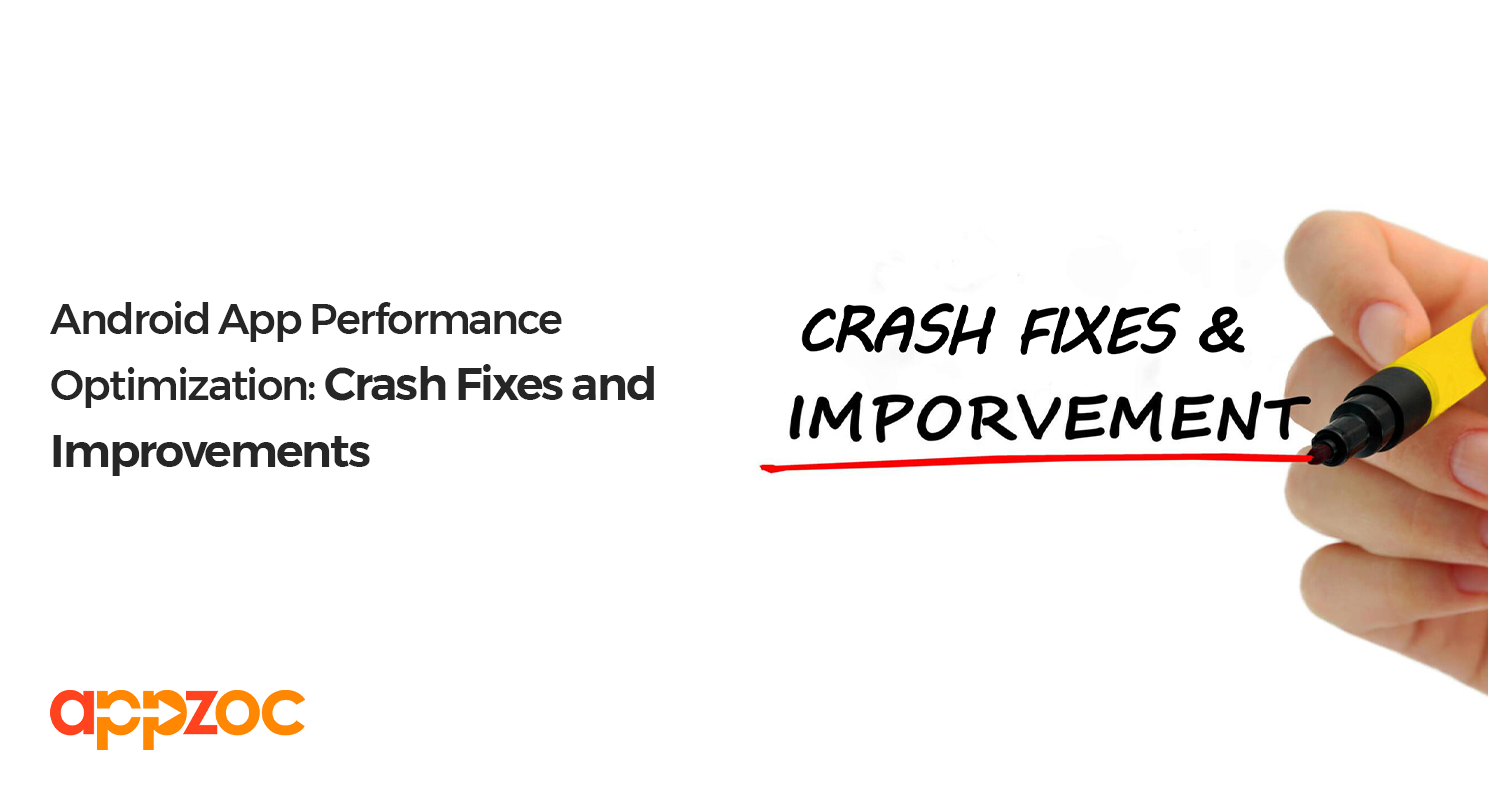
Flutter
Make the most of this cutting-edge technology by developing apps quickly! Our Flutter solutions have amazing features that can be used to create sleek, high-performance apps that can scale seamlessly across platforms.

In the competitive realm of Android app development, optimizing performance is paramount for delivering seamless user experiences and maintaining user satisfaction. Android apps often encounter crashes and performance issues, which can significantly impact user engagement and retention. This blog explores effective strategies and best practices for optimizing Android app performance, with a focus on crash fixes and improvements. For businesses seeking expert guidance, partnering with an Android development company in Bangalore can offer invaluable insights and support throughout the optimization process.
Android app performance optimization encompasses a range of techniques and methodologies aimed at enhancing the speed, responsiveness, stability, and efficiency of mobile applications. By identifying and addressing performance bottlenecks, crashes, memory leaks, and other issues, developers can ensure that Android apps deliver optimal performance across diverse devices and usage scenarios.
Memory Leaks: Improper memory management can lead to memory leaks, where allocated memory is not properly released, resulting in performance degradation and eventual app crashes.
Resource Intensive Operations: Heavy computational tasks, excessive network requests, and inefficient database queries can strain system resources and degrade app performance.
UI Thread Blocking: Long-running operations on the main UI thread can cause the app to become unresponsive, resulting in poor user experience and potential ANR (Application Not Responding) errors.
Compatibility Issues: Incompatibility with different Android versions, device configurations, screen sizes, and hardware specifications can lead to inconsistent performance and compatibility issues.
Memory Management: Implement efficient memory management practices, such as garbage collection, object pooling, and memory profiling, to identify and mitigate memory leaks and excessive memory consumption.
Asynchronous Operations: Offload resource-intensive tasks, such as network requests and database operations, to background threads or asynchronous execution environments to prevent UI thread blocking and ensure smooth user interactions.
Code Optimization: Optimize code structure, algorithms, and data structures to minimize computational overhead, reduce code complexity, and improve execution efficiency.
UI Optimization: Implement responsive and fluid user interfaces by optimizing layout hierarchies, reducing view complexity, and leveraging techniques like RecyclerView for efficient list rendering.
Performance Monitoring: Integrate performance monitoring tools and analytics platforms, such as Firebase Performance Monitoring and Crashlytics, to track app performance metrics, identify performance bottlenecks, and prioritize optimization efforts.
Device Testing: Conduct thorough testing across a diverse range of Android devices, screen sizes, resolutions, and OS versions to ensure compatibility and optimal performance under various real-world conditions.
Continuous Optimization: Adopt a proactive approach to performance optimization by regularly monitoring app performance, soliciting user feedback, and iterating on improvements to address emerging issues and user pain points.
Also Read:Java vs. Kotlin: Choosing the Right Language for Your Android App Development
Partnering with an Android Development Company in Bangalore
For businesses embarking on Android app development or seeking to optimize existing apps, partnering with an Android development company in Bangalore can offer specialized expertise, industry insights, and tailored solutions to address performance challenges effectively. With a deep understanding of the Android ecosystem and proven experience in developing high-performance apps, Bangalore-based Android development companies can provide end-to-end support, from initial consultation and strategy formulation to implementation, testing, and ongoing optimization.
In conclusion, optimizing Android app performance is a continuous and multifaceted process that requires careful planning, systematic analysis, and proactive intervention. By implementing best practices for crash fixes and performance improvements, developers can enhance the stability, responsiveness, and overall user experience of Android apps. For businesses seeking to leverage the expertise of seasoned professionals, partnering with an Android development company in Bangalore can unlock opportunities for innovation, differentiation, and sustained success in the competitive mobile app market. Embracing a culture of performance optimization and continuous improvement is essential for staying ahead of the curve and delighting users in an ever-evolving digital landscape.